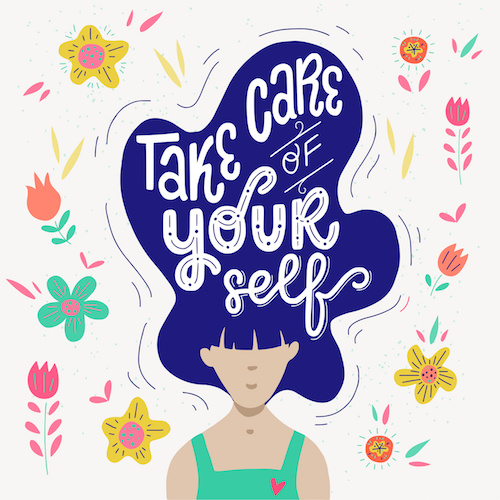I know that you are probably being bogged down with articles about the Coronavirus pandemic in one way or another, but I wanted to reach out and provide you with some of my personal help if you are struggling with mental illness during this time.
I am currently being quarantined at home, and numerous members of my family have chronic health conditions that make them part of the more at risk population for contracting Coronavirus. The hysteria that I am seeing in the world, particularly close to home, is frightening and it makes it hard to protect my mental health while dealing with a situation that we really don’t know that much about.
It can be so hard to focus on taking care of our mental health in the midst of a worldwide crisis, but there are little things that you can do to protect yourself through these troubling times. Therefore, I wanted to provide you with some of my tips for protecting yourself while staying informed as we learn more about this pandemic.
My Top 5 Tips to Protecting Your Mental Health During the Corona Virus Pandemic
- Limit your exposure to the media
Many of us are stuck at home due to self-isolation or quarantine, and it is so tempting to follow the media to have a connection to this global issue and the world at large. However, with so many media sources bogging us down, we are at risk of experiencing a mental health crisis – particularly if we struggle with anxiety and depression.
I personally struggle with Obsessive-Compulsive Disorder, Major Depressive Disorder, Borderline Personality Disorder, and Complex PTSD, and I have noticed how activated I have become within the past week. The more I have followed the Coronavirus pandemic on Facebook and my local news channels, the more my anxiety has increased. I have also been experiencing more PTSD related symptoms (such as panic attacks, jumpiness, irritation, and flashbacks) due to my heightened anxiety.
Rather than continuing to follow the non-stop media, I have chosen to limit my access and have filled my time with other activities, such as reading the haul of library books I have checked out that I can’t return because all of the libraries are closed in my area (oh darn).
2. Avoid reading and engaging in comments on social media
One thing that has been particularly activating for me even more than reading articles in the media has been reading the comment sections, especially on Facebook. I have seen people be downright cruel to one another and begin fights that are so unnecessary. If you are sensitive to the hostility of others, than I would advise you to refrain from reading the comment sections on articles as they seem to be getting more and more political.
3. Follow only official reports of the Coronavirus in your area
While I am advising you to limit your access to the media, it is important to keep up on information regarding the Coronavirus in your area for safety purposes. Many areas have official health organizations that are posting regular updates, or you can view global updates here. This information will allow you to stay up to date with important emergency information, but you won’t be overloaded with unnecessary political articles or opinion pieces.
These updates by official health organizations will also provide you with realistic information on how to prepare for the Coronavirus so that you will be prepared if you do contract it.
4. Keep yourself busy and stay connected
This is especially important if you are currently self-isolating! If you have kids at home, create a daily schedule to help keep all of you busy to prevent anxiety and boredom. Scholastic just released a new website with “learn at home” activities to help you keep your kids busy, and they are free to access!
Also, why not use the time to do some things around your house that you haven’t had time to do? This can include cleaning or chores, but what about binging that TV show you’ve been wanting to watch, or starting a craft or playing a game either alone or with anyone who is in your home?
Seeing this extra time off in a positive light can help you to fight the fear that is surrounding this pandemic. I would also advise you to stay in contact with loved ones through any digital means necessary as connection can be so important to maintain social support.
5. Create a “crisis kit” (if you don’t have one) and use it to help you self-soothe
Creating a crisis kit is my #1 go to when it comes to mental health. A crisis kit is essentially a kit that includes things that make you happy or help you to relax and self-soothe when you find that your mental health is declining. For instance, my kit includes various crafts that I like to partake in (such as cross-stitch for my OCD), silly putty, stuffed animals, and a notebook full of my favorite TV shows, movies, books, and songs, as well as information on how to access them.
Your crisis kit can include anything that brings you joy, and I would advise that if you don’t know where to start, simply start by grabbing a notebook and writing down anything that makes you happy. This is a great practice that will help you release anxiety immediately, as well as provide you with a long-term resource to remind you of what brings you joy.
I hope that these tips will bring you some peace of mind through this pandemic. Please know that I am here for you, so please don’t hesitate to reach out!


